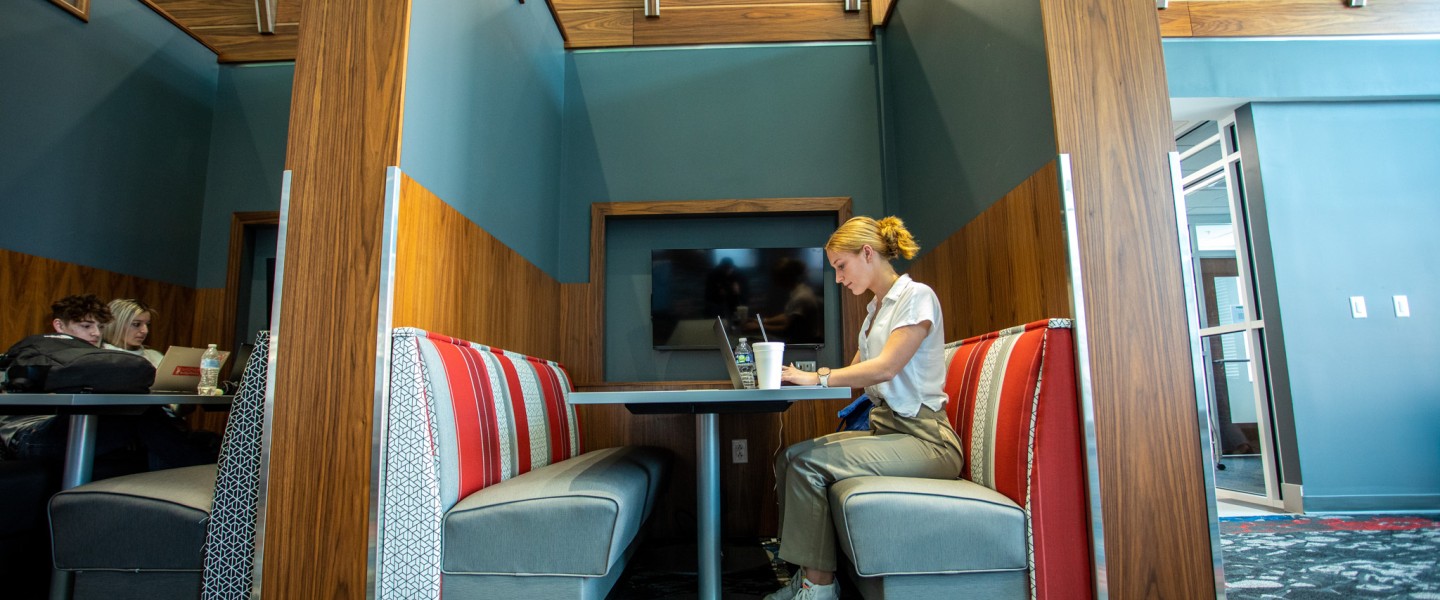One of the many results of the shutdowns and quarantines of 2020 has been an increase in both learning and working online across the globe. In 2018, U.S. News and World Report estimated there were 3.3 million students enrolled in exclusively distance education programs; that number has increased considerably in the aftermath of the pandemic.
The demand for online undergraduate education has exploded, but those considering this path towards a degree need to understand what it means. Here is a closer look at online undergrad degrees and how they compare to traditional on-campus options.
Cost of Online Versus On-Campus Degree Programs
One of the reasons many people choose online education over on-campus degree programs is to cut costs, but does it actually save money? According to U.S. News & World Report, it can, but not always. The average cost per credit for online programs at private colleges in the 2019-2020 school year was $488 compared to $1,240 for on-campus programs. However, public college were comparable, with $316 per credit hour for online bachelor’s degree programs and $311 per credit hour for on-campus.
There are other ways to save, however. When you complete your degree online, you do not have dorm housing expenses and other room-and-board costs. You also may avoid costs for commuting to and from campus. In this way, online can be a more cost-effective learning alternative.
Social and Community Aspects: Online vs In-Person
Choosing to attend school online versus on-campus can limit the social aspect of college. Your college years are a time when you can create lifelong friendships, and school also provides the chance to build a social and professional network that can lead to employment opportunities after you graduate.
While many online programs are working hard to create online social connections through video chatting and forum-based discussions, there is something you lose when you do not attend school in person with your classmates. The community that you build around yourself when you go to college is something you may sacrifice if you choose an online degree.
Quality of Education
In the past, students feared losing the quality of their degree if they opted to skip brick-and-mortar colleges in favor of an online school. However, today’s colleges are offering the same high-level education to online students as to traditional students. In fact, many of the college classes offered online are exactly the same as those offered at in-person college, especially if you choose an accredited program. Distance learning options have evolved significantly, and the quality of the education is no longer a concern when deciding between traditional vs online undergraduate degree programs.
Perception of Degree
If you tell someone that you are going to go to college online instead of in-person, you may get some negative feedback. Though perceptions are changing, people historically have viewed online education as less valid than traditional education. That perception is shifting as more students embrace the convenience of online school and the respect for online degree programs grow among the general public.
Are Online Degrees Respected by Employers?
Even though online degrees offer the same level of education as traditional school programs, many students wonder if employers will view them as equal. Thankfully, most employers are embracing online degree programs from high-quality schools. In fact, as early as 2010, 83% of executives stated online degrees were just as credible as on-campus degrees, as long as they are from accredited schools.
Interestingly, there does appear to be a discrepancy. According to the Society for Human Resource Management, only 42% of employers would hire a candidate with a degree from an online-only university, but 92% would hire one with an online degree from a brick-and-mortar school. It appears that online-only schools have a negative reputation in the eyes of potential employers, not necessarily online degrees generally. The report also shows that 79% of organizations hired applicants with online degrees over the previous 12 months. These statistics show that online education is increasingly considered valid in the minds of modern employers.
In other words, if an online degree comes from a trusted, known institution that has a reputation for quality education, it is widely accepted by potential employers. If a degree comes from an online-only school with a weak reputation, many employers may not be as impressed.
Flexibility
One of the perks of attending an online school is the flexibility to study from home, often on a schedule that fits your needs. Many online programs are set up for working students by not requiring attendance at specific times. These programs provide the flexibility to log in and do coursework round-the-clock, allowing students to continue working — even full-time — while attending school. In-person college classes do not offer the same level of flexibility because students must be in the classroom at specific times.
For the traditional students, flexibility may not be an important factor when weighing traditional vs online undergraduate degree programs. However, adult learners, especially students with family and work responsibilities, do need this degree of flexibility, and it is a factor that deserves consideration when making this decision.
Are Traditional & Online Degrees the Same?
Ultimately, students need to consider whether traditional and online degree programs offer the same learning experience, and this answer is going to depend on the college and the program. Many schools offer identical degrees online with the same credits and sometimes, the same professors, while others have online-specific degrees that differ slightly from their on-campus equivalent.
The key to earning a quality education through an online degree program is to choose an accredited school. To attain accreditation, the school must cover specific items in its degree programs. This means that online degrees are going to be high-quality because the school has specific components it must cover in order to deliver the degree.
Do Online Degrees Say Online?
If you complete an online degree with a school that offers both online and traditional degree programs, your degree is unlikely to say “online” on it anywhere. Potential employers may not even know that you have an online degree unless you choose to disclose this information.
Which Is Better: Online or Traditional Undergrad?
The answer depends on your needs and the school you choose. If you get your degree from an accredited, trusted college or university, and you need the flexibility of online education, then it is a good choice for the convenience you need without sacrificing quality. On the other hand, if you do not need the flexibility and wish to build a community around yourself or desire social connections through your education, then on-campus programs may be a better fit.
To make the decision between the two paths, you must consider your stage in life and the goals you have for your education. If your primary goal is to graduate with your degree while enjoying flexibility, for example, if you have family and work responsibilities to consider, distance learning may be the right fit. If you are a traditional student or desire the social aspects of a college education experience, then pursuing a traditional degree program is likely going to fit your needs well.
What About Hybrid or Blended Degrees?
Another option some students choose is a hybrid or blended degree program. This combines on-campus classes with online classes into one degree path. While this might seem like the best of both worlds, it can be a complicated way to earn a degree. Hybrid programs provide the flexibility to study from home for some classes, but still require you to check in on-campus for others. Some students find this to be a bit confusing and prefer to commit to one form of education or the other.
Start Your Degree Program at University of the Cumberlands Today
Whether you decide that a traditional undergrad or an online degree program is right for you, University of the Cumberlands can help. We have both traditional and online undergraduate degrees to fit your needs, and all are from our same high-quality instructors and offer the benefit of an accredited degree program.
If you are interested in learning more about traditional or online undergraduate degrees offered at University of the Cumberlands, contact an admissions counselor or request more information today!

